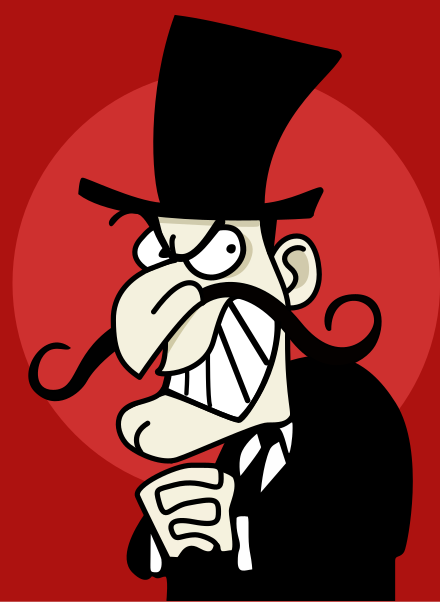The "Villain" in Kavalier and Clay
The "Villain" in Kavalier and Clay:
In Kavalier and Clay, there is no singular villain. It is impossible to identify one person as the overarching villain like you can in Star Wars or Harry Potter or any Shakespearean work, but instead a group of people and/or ideology. For Joe, the villain is the Nazi regime, and by extension, the German population. Joe sees every German he comes across as the enemy, an extension of Adolf Hitler's deadly hand. Joe's life has been wrecked by the Nazis - he was forced to abandon his family, he lost his brother, his only beacon of hope, and has turned him into a marginalized spectacle of society as a Jewish refugee. Joe takes out this anger on every German he faces, judging them for their nationality and not for their personal values. For example, Joe's mission to kill the German scientist residing in Antartica was not at all a reflection of his hatred for the scientist himself, but instead his hatred for the German regime for which he stood. Joe manifests the villainous nature of the Nazi regime in his life by portraying them as the villains of his comic books, having the heroes of his comics destroy the Nazis one by one. Joe makes it his mission to destroy his villain, even if it is only in the pages of a comic book.
Another villain figure in Kavalier and Clay is Sheldon Anapol, Joe and Sammy's comic book boss who represents the wealthy elite of society. Joe and Sammy's immense talent and dedication to their craft built Anapol's comic book empire, but they did not reap the reward. This unjust distribution of wealth within Empire Comics is a reflection of the economic inequalities that exist in an industrial society, where those who provide the labor that serves as the backbone for business and industry receive minimal compensation, while rich elites make millions or billions of dollars. Sheldon Anapol is a financial villain in Kavalier and Clay, as his elevated social status gives him the key to economic prosperity.

I also wrote about villains in one of my blog posts and we share some similar but different ideas. I find it interesting that you didn’t touch on Carl Ebling at all. Carl Ebling seemed to be the joker to batman and in this case Joe is batman. He is the only villain in this story who had real intentions of trying to hurt Joe. He brought a bomb into a bar mitsvah to claim his revenge for what Joe had done to him in his office. When I started brainstorming ideas for my post, he stood out to me immediately. But overall, your ideas are complex and interesting, and I especially like how you described Sheldon Anapol as being portrayed as the financial villain.
ReplyDeleteI really like your take on the lack of a lone clearly defined villain because it is a good explanation of Joe’s hatred for Germans in general. There is no individual person to whom Joe can assign the blame for his family’s deaths, so instead he vilifies the entire German people: a connection which makes sense when you consider that the group most directly responsible for Joe’s suffering (the Nazis, as you said) have based their identity in German nationalism. Something else I really liked about your thoughts here was your examination of the semi-vilification of Joe, as his hatred becomes the main driver of many of his actions throughout the book. That certainly sounds like a villainous trait to me, showing the futility of living life according to a cycle of hatred. I also liked your refusal to let Anapol off the hook. Sure, he gave Joe and Sam their platform (which they would have found elsewhere in all likelihood), but he attempted to sacrifice his and their morality all for the sake of profit margins or for fear of upsetting business partners on various occasions. Great post Bean.
ReplyDelete